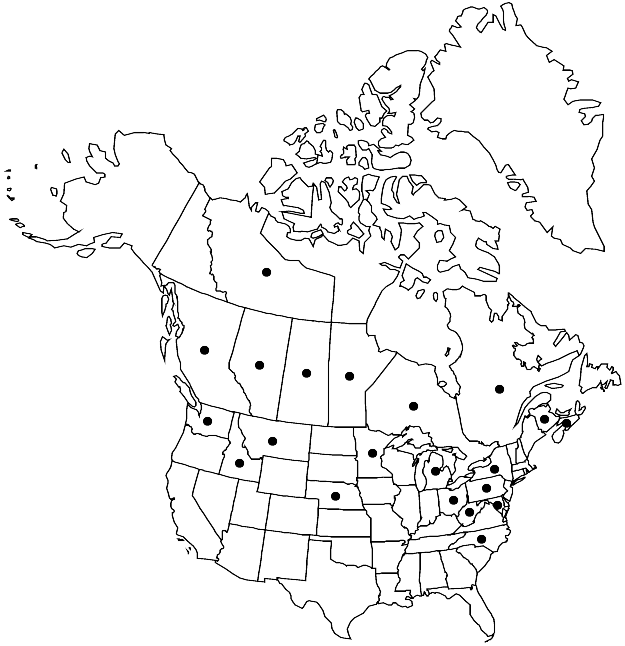Plagiomnium drummondii
Ann. Bot. Fenn. 5: 146. 1968.
Erect stems 1–4 cm, not dendroid; sterile stems to 7 cm. Leaves light green or yellow-green, moderately contorted when dry, flat when moist, obovate or sometimes elliptic, 2–6 mm; base long-decurrent; margins toothed from about mid leaf to apex, sometimes to just below mid leaf, teeth sharp, of 1–2 (–3) cells; apex acuminate or acute, occasionally obtuse or rounded, short to long-cuspidate, cusp toothed; costa percurrent, excurrent, or rarely subpercurrent; medial laminal cells ± isodiametric or short-elongate, 30–50 (–60) µm, much smaller near margins, often less than 1/2 size, in longitudinal, not diagonal rows, not or weakly collenchymatous, walls not pitted; marginal cells linear, in 2–4 rows. Sexual condition synoicous. Seta 1–3 (–4), yellow to reddish-brown, 1.2–3 cm. Capsule horizontal to pendent, ovoid or obovoid, 2–3 mm, neck not distinct; operculum conic-apiculate. Spores 18–25 µm.
Phenology: Capsules mature late spring.
Habitat: Humus, soil, logs, rock, stumps or tree bases in fire-dependent forests/woodlands, mesic hardwood forests, swamps, wet forests
Elevation: low elevations
Distribution

Alta., B.C., Man., N.B., N.W.T., N.S., Ont., Que., Sask., Idaho, Md., Mich., Minn., Mont., Nebr., N.Y., N.C., Ohio, Pa., Wash., W.Va., Europe, Asia
Discussion
See discussion for this species under 3. Plagiomnium cuspidatum.
Selected References
None.